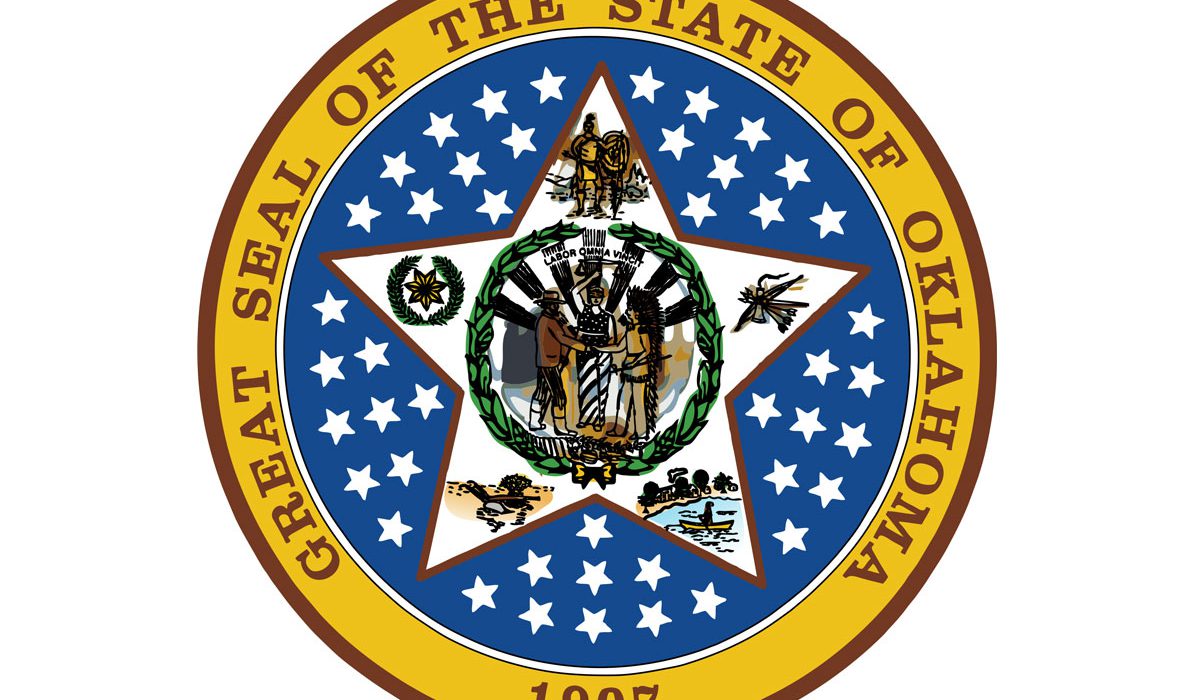Release
OKLAHOMA CITY – The Legislature on Monday stabilized the current year budget to prevent cuts to agencies and affirmed Gov. Kevin Stitt’s expanded health emergency declaration, which gives the governor additional authority to respond to COVID-19.
Monday’s proceedings operated under strict public health protocols, such as restricting access to the Capitol and allowing no more than 10 people in any room at any time. Sixteen House members voted remotely from their districts under a House rule allowing remote voting during the pandemic.
The House was able to accomplish its work in less than two and a half hours by using protocols to expedite floor proceedings for public health purposes. During that time, it sent five necessary measures to the Senate, which approved them.
“The Legislature acted swiftly and decisively to address these needs,” said House Speaker Charles McCall, R-Atoka. “The Legislature made sure there will be no budget cuts to state agencies this fiscal year during the pandemic response while giving the governor the ability to step up the state’s response. We had business to take care of for the good of the state, and we did not hesitate to complete it. We are keeping government functional.”
McCall added: “The spirit of collaborative productivity this Legislature has embraced made this possible, and I extend my thanks to all the members in both parties in both chambers for their decisive actions today for the State of Oklahoma.”
Budget stabilization
The budget stabilization bills withdraw money from state reserve accounts to address the revenue failure in the current fiscal year. Economic slowdowns caused by COVID-19 and low oil prices caused a $416 million revenue shortfall that will be filled with reserve funds under the legislation passed Monday. Agencies would not experience cuts under these measures.
The budget stabilization bills, which all passed the House unanimously, are:
- Senate Bill 1053 sends $201.6 million from the Rainy Day Fund to the Revenue Stabilization Fund.
- Senate Bill 199 sends $302.3 million from the Rainy Day Fund to the General Revenue Fund.
- Senate Bill 617 authorizes the Office of Management and Enterprise Services to withdraw up to half of the balance of the Revenue Stabilization Fund to avoid cuts to agencies and the 1017 fund for education in a revenue failure in the current fiscal year.
In total, the Legislature approved withdrawing $503.9 million from the Rainy Day Fund. Any excess funds will remain in the Revenue Stabilization Fund for use by the Legislature and executive branch budget officials in addressing potential future revenue failures, as authorized in SB 617.
After the withdrawals, the Rainy Day Fund balance is $302.3 million and the Revenue Stabilization Fund balance is $349.7 million.
Health emergency affirmation
House Concurrent Resolution 1001x affirms the governor’s declaration of an expanded statewide health emergency. Under state law, the Legislature’s affirmation of the declaration lasts for 30 days. It passed the House, 99-1, and Senate and, as a concurrent resolution, is not required to go to the governor. It is now in effect.
The governor’s declaration allows the executive branch to centralize state and county health department response efforts, let first responders to know if they are responding to a location with a COVID-19 patient, and the governor to waive certain laws and rules for the purpose of the pandemic response.
“There always has to be a check to power, even with people we trust,” said House Majority Floor Leader Jon Echols, R-Oklahoma City, who presented the measure. “This measure allows the governor very broad powers deemed necessary for an effective response. We will be watchful, however, to ensure that the governor acts in the best interest of all Oklahomans, which we are confident he will.”
The Legislature adjourned special session to the call of the chair, which would allow it to return to special session to revoke or change the powers granted to the governor within the next 30 days, if needed.
The governor was required by law to call a special session of the Legislature for the purpose of affirming or denying the expanded health emergency declaration.
Next steps
The Legislature had not been in the Capitol since March 17, when a staffer tested positive. Since then, the Capitol was deep cleaned as legislators worked from their districts and staff worked remotely.
The Legislature will stand in recess again and continue to work from districts until taking up next year’s state budget.
“Our next order of business is a budget for next year, and an agreement on that budget is approaching,” McCall said. “Once next year’s budget is done, a limited number of policy bills will come next.”
McCall said Monday’s action showed the necessity of the Legislature remaining in session at this time.
“The Legislature will remain ready to respond in a responsible manner, as we did today, to future needs as they may arise,” McCall said. “We have been able to remain productive in our districts without convening at the Capitol except when necessary to act, as we did today. This will remain our approach going forward.”


